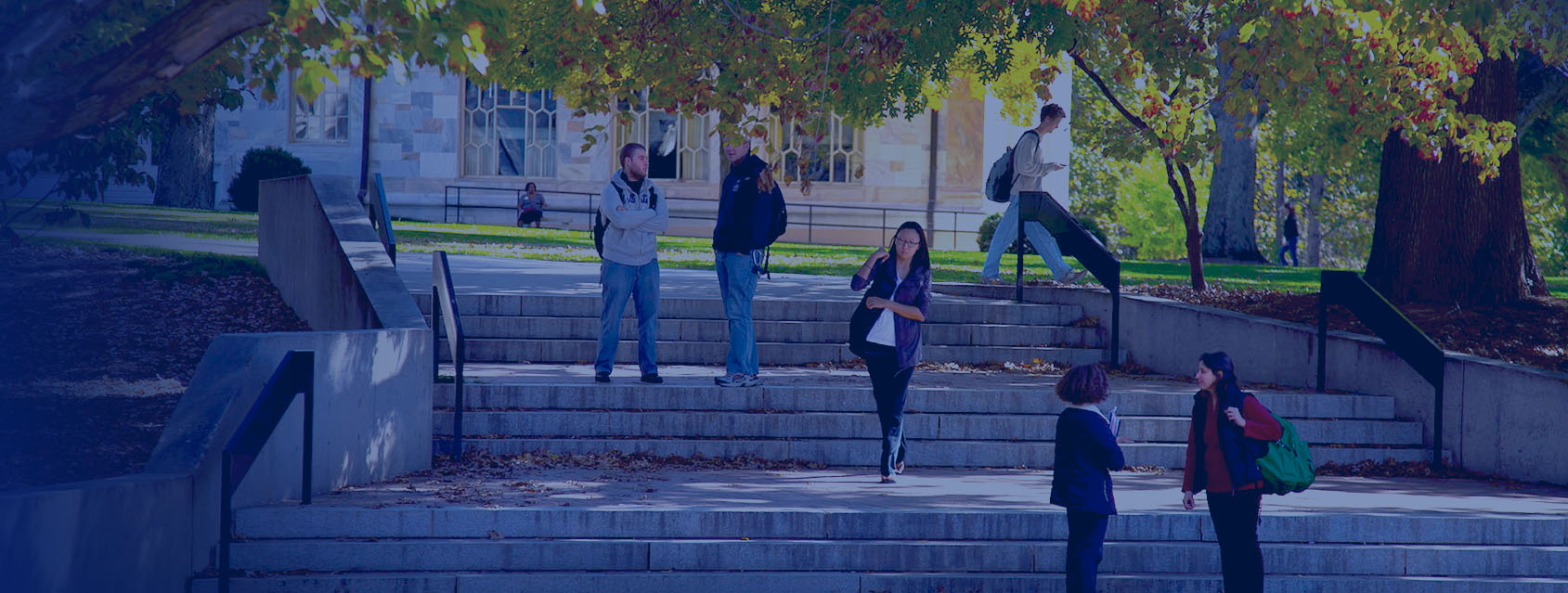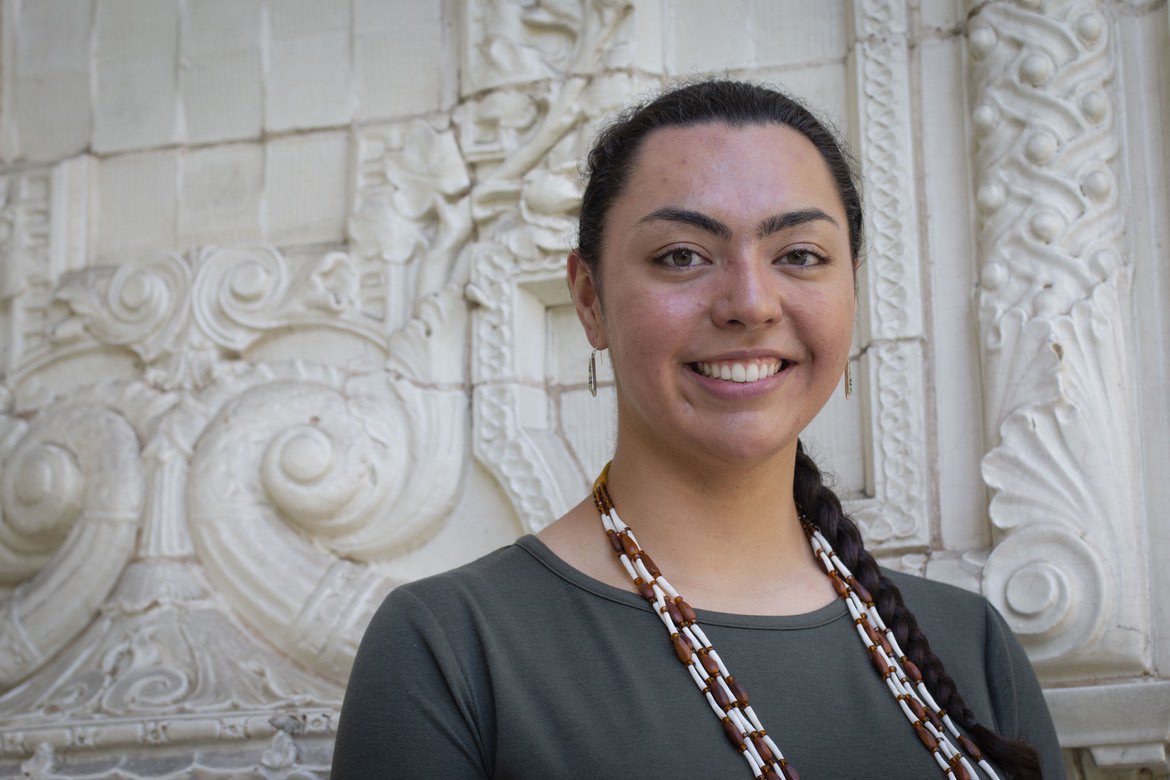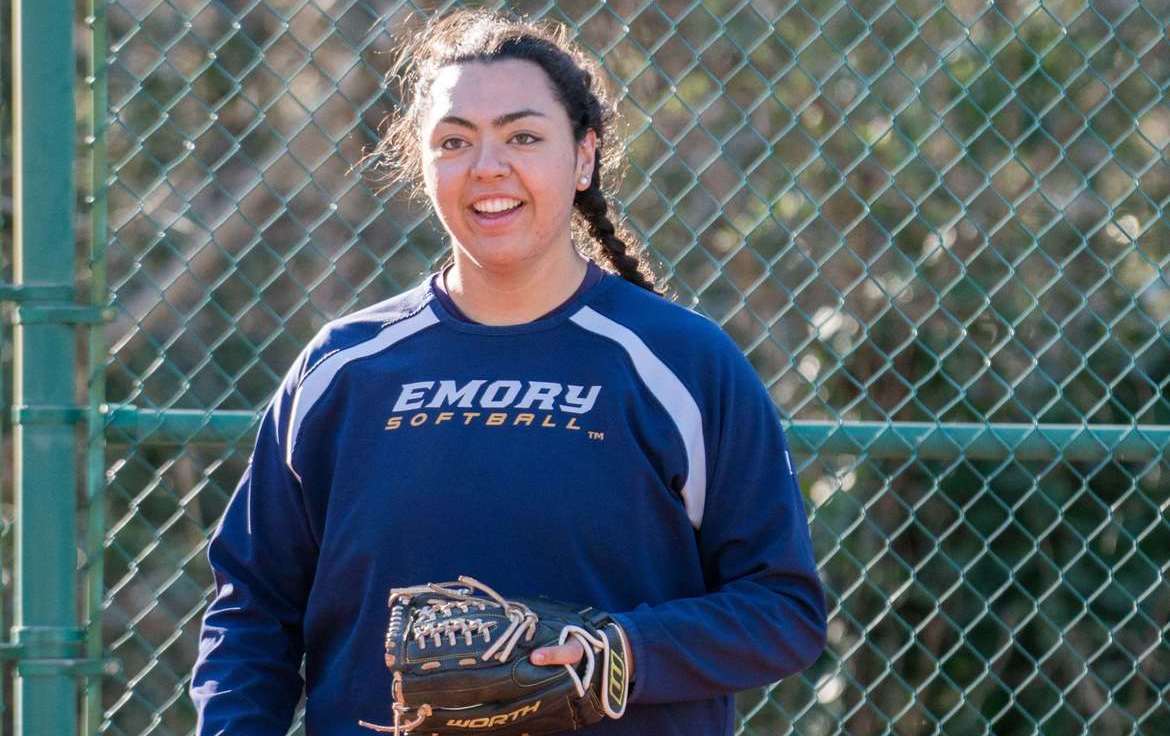
2019 Brittain Award recipient Klamath Henry
May 7, 2019
May 7, 2019
During her studies at Emory, Henry has engaged with Campus Life in a range of roles.
By John Baker Brown, Campus Life
Klamath Henry, Emory’s 2019 Brittain Award recipient, graduates this month with a BA in anthropology and a minor in environmental science. She plans to pursue graduate studies in cultural anthropology and server as a graduate assistant to the softball program at California State University, Fullerton. Klamath is from Fernley, Nevada.
During her studies at Emory, Henry has engaged with Campus Life in a range of roles. In a recent communication with ECL Connections, she discussed those affiliations and their impact on her Emory experience.

Photo by Tina Chang.
Klamath Henry: I was first active in Campus Life as a student athlete on the softball team. Ever since my first steps on campus, I have been proud to be an Emory Eagle. Unfortunately, I had to retire from playing during my second season due to injury.
In my first year on campus, I served as an advisory board member on Dean Nair’s First Year Advisory Committee, facility attendant at the WoodPec, and member of the Turmilton RHA Staff. In my second year, I applied to be a Sophomore Advisor and worked in Dobbs Hall. That same year, I was appointed as an intern for the Commission on Racial and Social Justice (CRSJ). My duties in the CRSJ intern program continued through my graduation this spring.
ECL Connections: Have those experiences impacted your life, your worldview? If so, how.
Klamath Henry: The experiences that I have had within the division of Campus Life have taught me to work for and with people in an ethical way. Working on committees and within cohort-type programs have developed me into a strong team player and have taught me to always try to take special care when listening to communities outside my own. I have also learned in my time working with Campus Life just how messy and complex people are. We all have unique stories to tell. It is beautiful.
ECL Connections: Which role had the most impact? Why?
Klamath Henry: My CRSJ internship had the most impact. Tomika DePriest and the upperclassmen in the original cohorts of the program taught me to how be a strong female leader and take action for justice in a methodological way. From these experiences, I learned how to operate from within the “power of the university” and be heard.
The students from other racial and ethnic communities in the program taught me how to be an empathetic and ethical human being, and gave me space to voice my concerns about my own Native community. In the CRSJ program, I was supported, loved, and cherished as a concerned member of the Emory community.
ECL Connections: What were your most important accomplishments in those roles?
Klamath Henry: The CRSJ internship connected me with stakeholders in Emory College and the broader university system, which gave my causes of Native American student recruitment and retention, land acknowledgment, and sovereign Nation building more traction.
From there, I was placed on a working committee hosted by the Office of Undergraduate Admission and concerned with the future life of Native students and their retention at Emory. In the fall of 2018, the working group hosted a panel of guests to evaluate the university in its current state and determine which changes needed to occur to attract and retain more Native students. It was awesome to see my hard work come to fruition.
ECL Connections: What is the most important insight or knowledge that you will take with you from Emory?
Klamath Henry: I am always going to be different because I am from sovereign Nations, and that it something that I should always be proud of. This Emory College degree will give me privilege within my own community, and upon graduating I need to pursue things that will help my people.
Some people in positions of power at Emory have tried to tokenize, degrade, or belittle me. The key word is tried. None have succeeded, but the mere attempts at doing so are unacceptable.
From my time on campus I can say that mostly, through both the good and the bad, I have learned how to be strong. Most people have listened to me, and because of that, together, we as an Emory community have grown stronger as beings. I hope that my ancestors are proud of me and what I am doing.

Photo by Story First.
ECL Connections: What would you say to incoming students about engagement with Emory?
Klamath Henry: Incoming students: There is a place for you at Emory, but you need to put in the effort to find it. Stay persistent in your pursuits to create space. If you press yourself into a space, community, or area of study that makes you uncomfortable, you are not doing college right. Do what you were made to do. If you excel at cooking, dancing, activism, graphic design, growing bacteria, arguing, teaching, athletics, etc., master your craft.
Create community with those who look like you and especially with those who do not. Refuse to put up walls. Take other people’s feelings and experiences as fact. It is from those experiences that you will learn more about your position in the world, and how you can work to help both yourself, your community, and others flourish.
ECL Connections: How would you summarize/describe how Emory has dealt with issues of diversity during your four years here?
Klamath Henry: In my time at Emory, I have seen campus change drastically in the ways that it has dealt with issues of diversity. Some responses to student concerns have been dealt with adequately, but others have been severely ignored. A few years ago students did not have a seat at the administrative table.
This has since changed. Emory can always do better for its students. I think it is commendable that we excel in training racial and social justice activists at the institutional level. Some of the programs and funding in this area surpass similar institutions.
My own concerns about Native American student representation and land acknowledgment have not been addressed yet by the top of the chain at Emory, but I do foresee that changing in the next few years. It is exciting to know that there will be a chief diversity officer next school year.
Students expect that this person will be well-trained in how to respond to crisis, demands, and inequality in underrepresented communities. This chief diversity officer will hopefully play a major role in leading the university to a better place.
ECL Connections: Would you like to add anything to your comments?
I would lastly like to say Nyá:wę. This means thank you in my indigenous tongue. Nyá:wę to the ancestral peoples of the lands upon which Emory University currently resides and those who were enslaved and forced to build the infrastructure on Emory University lands.
Emory is located on the traditional lands of the Muscogee Creek peoples. The Muscogee Creek were forcibly removed by the U.S. government in 1834. This event would go on to be remembered as the Trail of Tears. Nyá:wę to those ancestors and modern-day Muscogee peoples who continue to care for the land. Nyá:wę to those who built Emory University.
Learn More
Brittain Award winner explores Native American heritage through advocacy and anthropology
Emory Report, May 7, 2019
http://news.emory.edu/stories/2019/05/er_commencement_award_brittain_henry/campus.html
Nyá:wę (thank you), Emory | Klamath Henry
The Emory Wheel, April 2019
https://emorywheel.com/klamath-henry
The Marion Luther Brittain Award
campuslife.emory.edu/_includes/documents/sections/about/MLBA_nom_2018.pdf
Emory Report, May 7, 2019
http://news.emory.edu/stories/2019/05/er_commencement_award_brittain_henry/campus.html
Nyá:wę (thank you), Emory | Klamath Henry
The Emory Wheel, April 2019
https://emorywheel.com/klamath-henry
The Marion Luther Brittain Award
campuslife.emory.edu/_includes/documents/sections/about/MLBA_nom_2018.pdf